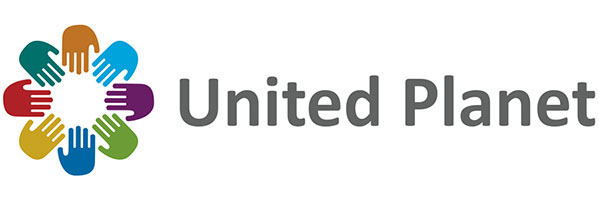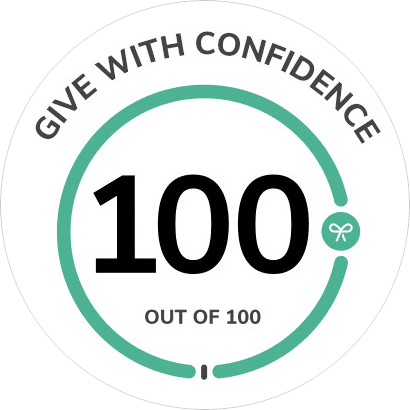Written by guest blogger Emma Higgins. Emma has been writing and traveling on and off since 2009. Her blog, Gotta Keep Movin’, is full of stories and advice from her trips, which include Europe, India, Morocco, South America, the USA and Canada. Her main focuses are budget travel and volunteering, and she has been involved in sustainable farming in Argentina, animal shelters in Peru, and even tried her hand at making goats cheese in British Colombia.
Last week, Emma Higgins of Gotta Keep Movin’ shared her pre-departure tips for staying healthy while traveling abroad. This week, she covers on-the-road health advice!
It’s never enjoyable when you feel sick or ill whilst you’re traveling, especially if you don’t have access to the medication you usually take or the home comforts that make you feel better. I have known quite a few people that are put off going to many places because they feel like they’ll end up catching some horrible disease. While it’s important to prepare yourself and know what risks there might be in the place you’re visiting, it shouldn’t be a reason to not go traveling unless the risks are very high. The following precautions will help you wherever you are in the world, and will enable you to travel and stay healthy.
Food
 The main thing that makes most people ill while traveling is eating something that’s not been cooked properly. There are a few ways to tackle this, but avoiding food that you’re uncertain of is the most effective. Don’t eat from street kitchens, go to reputable restaurants that your accommodation has recommended as safe, and perhaps even try going vegetarian as most of the infected food is meat.
The main thing that makes most people ill while traveling is eating something that’s not been cooked properly. There are a few ways to tackle this, but avoiding food that you’re uncertain of is the most effective. Don’t eat from street kitchens, go to reputable restaurants that your accommodation has recommended as safe, and perhaps even try going vegetarian as most of the infected food is meat.
However, this tactic limits you in terms of the cuisine you can enjoy, which is sometimes the best part of traveling. Some street food can be very safe to eat, so if you’d really like to try it go for the street vendors that have long queues of locals waiting in line. If the locals trust the food, you’re almost always onto a winner.
Water
Most travelers know that the best way to ensure you’re drinking safe water on the road is to buy it bottled from supermarkets. I personally hate doing this, as I can’t stand using that much plastic, but sometimes I have to in order to stay healthy. Always ask at your accommodation if the water is safe to drink, as sometimes you’ll be pleasantly surprised to find that it is. If not, buying purified water from a supermarket is the next best thing, and in order to keep your plastic usage down, buy big bottles and pack a smaller water container to put it into for day-to-day use.
Buying water from supermarkets is the best and in most cases cheapest way to buy bottled water, but if you have to buy it from the street, check the bottle to make sure the lid seal is intact. Some vendors will reuse bottles, fill them up with tap water, and sell them off as new bottles.
Medication
You will have probably sorted out which medications to take with you before travelling abroad, but but you can also take comfort in the knowledge that pharmacies abroad are usually very good unless you’re in the middle of nowhere. You will be able to find painkillers, anti-diarrheals, travel sickness pills, malaria tablets and many other medications in pharmacies, and your place of accommodation should be able to help you out with what to ask for if there is a language barrier. Medication is often a lot cheaper in other countries, so some people even opt for taking nothing and buying things as and when they need it.
Skincare
 It’s always great to come back from a trip abroad looking sun-kissed and glowing, but if you’re going to be out in the sun a lot on an extended trip, you really need to look after your skin and make sure you’re not burning over and over again. Make sure you apply a high SPF sun block in the mornings before heading out in the sun for the day, and reapplying it often when you feel the sun is beating down on you. There are plenty of sun blocks out there that will allow a small amount of UV through, which will leave you nice and tanned as well as healthy.
It’s always great to come back from a trip abroad looking sun-kissed and glowing, but if you’re going to be out in the sun a lot on an extended trip, you really need to look after your skin and make sure you’re not burning over and over again. Make sure you apply a high SPF sun block in the mornings before heading out in the sun for the day, and reapplying it often when you feel the sun is beating down on you. There are plenty of sun blocks out there that will allow a small amount of UV through, which will leave you nice and tanned as well as healthy.
Vitamin C
My dissolvable vitamin C tablets have been the single most useful thing I’ve taken with me in my backpack, ensuring I hardly ever get sick with cold or flu symptoms. I never really take vitamins on a regular basis which is why these have such a good effect on me, but many travelers carry them to give them a boost if they’re getting sick. If I feel even the tiniest bit of cold coming on, like a stuffy nose or headache, I dissolve one vitamin C tablet in a glass of water to drink, and the next day I’m usually feeling completely fine again. It very easy for your energy levels to drop if you’re constantly moving from place to place, which leaves you vulnerable to viruses. Help your immune system out with vitamin C and you should avoid these kinds of illnesses.
Read Healthy Travels: Tips for Traveling Abroad (Part 1)
Note from United Planet: The steps you take to travel healthy are ultimately up to you and your own judgment.
ABOUT UNITED PLANET
United Planet is a non-profit organization with a mission to create a global community, one relationship at a time. Established in 2001, United Planet offers volunteer abroad, virtual internships, internships abroad, gap year volunteering, and global virtual exchange in more than 40 countries.





